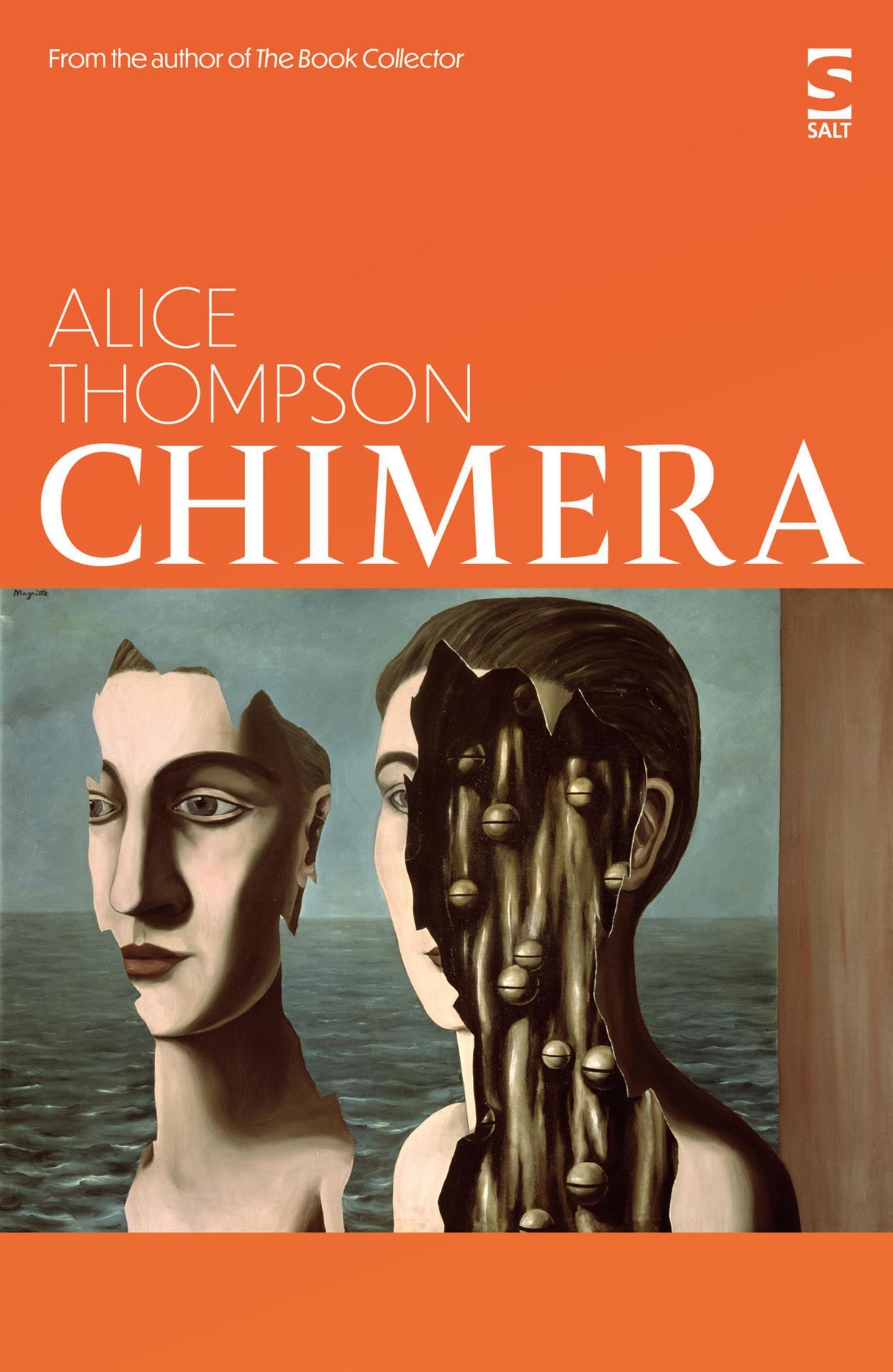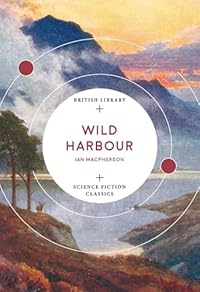Chimera by Alice Thompson
Posted in My ParSec reviews, Reading Reviewed, Reviews published in ParSec, Scottish Fiction at 12:00 on 29 February 2024
Salt, 2023, 183 p. Reviewed for ParSec 8.
 Alice Thompson is a veteran of seven previous novels but as far as I’m aware none of them has been Science Fiction. Concerning as it does a voyage to another planet (or, strictly, to its moon) this book could hardly be described as anything else. Yet it is not a typical exemplar of modern SF. Unlike the brashness of the average space exploration story its tonal qualities are more reminiscent of Stanisław Lem’s Solaris or David Lindsay’s A Voyage to Arcturus. Its epigraph, perhaps the most famous quotation from The Tempest, suggests the trajectory that will follow.
Alice Thompson is a veteran of seven previous novels but as far as I’m aware none of them has been Science Fiction. Concerning as it does a voyage to another planet (or, strictly, to its moon) this book could hardly be described as anything else. Yet it is not a typical exemplar of modern SF. Unlike the brashness of the average space exploration story its tonal qualities are more reminiscent of Stanisław Lem’s Solaris or David Lindsay’s A Voyage to Arcturus. Its epigraph, perhaps the most famous quotation from The Tempest, suggests the trajectory that will follow.
A prologue sets up the body of the text as a tale of lost memory. Artemis was the sole human returnee of her crew from their trip to Oneiros on the spaceship Chimera in a search for bacteria that could break down carbon dioxide to obviate global warming. Two dryads, hybrids of computing powers and cloned human DNA provided by anonymous donors, came back with her. Though she has none of Oneiros she is now setting down as a novel, Chimera, the memories she has of the trip.
This odyssey from a beleaguered world where – apart from “the IT elite, the governing body called the elITe” (who do not allow their children access to computers or smart phones) – all humans seem to be in thrall to “widespread automation and the internet of things” and “virtual reality had destroyed downtime and daydreaming” while “in many ways all human progress, except for AI, had stagnated,” is an incongruous endeavour. The crew seems mismatched and detached. Artemis tells us that in space humans are not allowed to dream; it is too unsettling for their daily work. Though she got on the trip more or less by subterfuge and has a slightly unbalanced mental history she is in charge of the medication to ensure this. “Pills suppress rapid eye movement.” Dryads record everything they see and hear. In their ever-lurking presence they come across like HAL from 2001: A Space Odyssey before David Bowman pulled its plugs.
Adding to the distancing effect odd things happen on board. Though it is cruising faster than the speed of light jolts affect the ship’s smooth passage. A dryad alters the temperature controls for no good reason. A bacterium appears on a microscope slide as if out of nowhere. Artemis starts to hear ringing bells. One of the crew, Ivan, disappears.
The oddnesses do not stop there. On Oneiros itself they land miles away from their destination and have to trek across a snowscape to reach the base built for them by automated fabricators. Artemis discovers there had been a previous research ship to the moon, the Siren, but Mission Control, personified in an AI named Cressida, lost contact with the crew and pilot dryads returned the ship. She begins to see shadows.
On a novelistic level the writing here is perfectly acceptable, though the book has flaws. Thompson brings attention to her use of quotations via asterisks and footnotes. That may be all very well in academic tracts but in a novel it distracts from the narrative. Oneiros is a tad too programmatically named. At times the information dumping could have been better integrated but there are also indications of a lack of familiarity with SF as a genre or with scientific processes. Stars are visible through Chimera’s windows even though it’s travelling faster than light. (I doubt light could be seen if it’s moving slower than any potential observer.) Before their trek across Oneiros, the crew take oxygen pills. (Just how are these supposed to work?)
The novel’s central concerns are the relationship between humans and dryads and the nature of consciousness – which Ivan opines may be a fundamental property of matter. The crew’s fate and that of Artemis are bound up with the absence of dreams. How does their loss affect people, how does their lack impact on the dryads?
An Epilogue describes Artemis’s novel’s fate and may be commenting on Artemis’s reliability as a narrator.
Chimera is a solid, very readable piece of work but in drawing comparison to Lem and Lindsay is setting a high bar.
Pedant’s corner:- “She turned to the dryad.’ Why?’” (She turned to the dryad. ‘Why?) “Just logarithms and data” (this was about a dryad. ‘Just algorithms and data’ makes more sense,) bacteria (used as if its singular. Occasionally the proper singular ‘bacterium’ pops up,) focussed (focused.) “our brains our designed to look for connections” (Our brains are designed to.) “There was always had a book of poetry” (no need for the ‘had’,) two sentences couched as questions but lacking their question mark. “Cressida gave him a disarming smile” (gave her,) a missing quotation mark at the end of a piece of direct speech, “she could make out, through the blizzard, snow that covered the entire surface of the moon, with abnormally high mountains in the distance” (a blizzard tends to obscure anything more than a few metres away,) “minus 40 centigrade” (the official designation for that temperature scale is Celsius.) “‘Check for cuts. Frostbite can get in’” (Cold can get in [though it’s actually heat being lost] and then frostbite might develop.) “Their strength and stamina was formidable” (the ‘and’ makes this plural; ‘were formidable’,) “outside of it” (outside it.) “A empty wardrobe” (An empty.) “His brain was wired different” (differently.) Technicolour (I believe it was spelled Technicolor,) “like an idea struck the flat previous” (I haven’t a clue what this is supposed to mean,) “refraction of protons” (this was about light; refraction of photons, then,) “of this moon ?” (the space between moon and the ‘?’ was there to distribute the words in the line evenly but it looked odd.)






